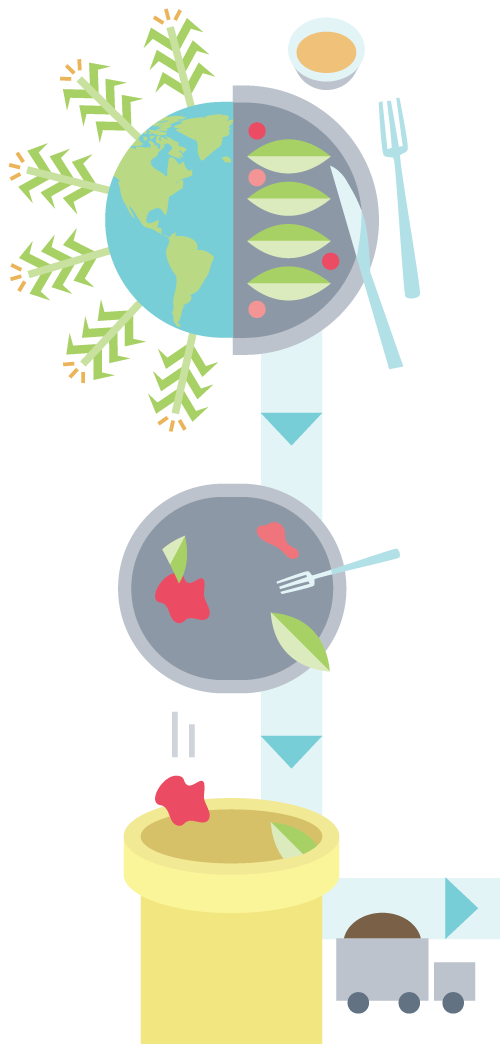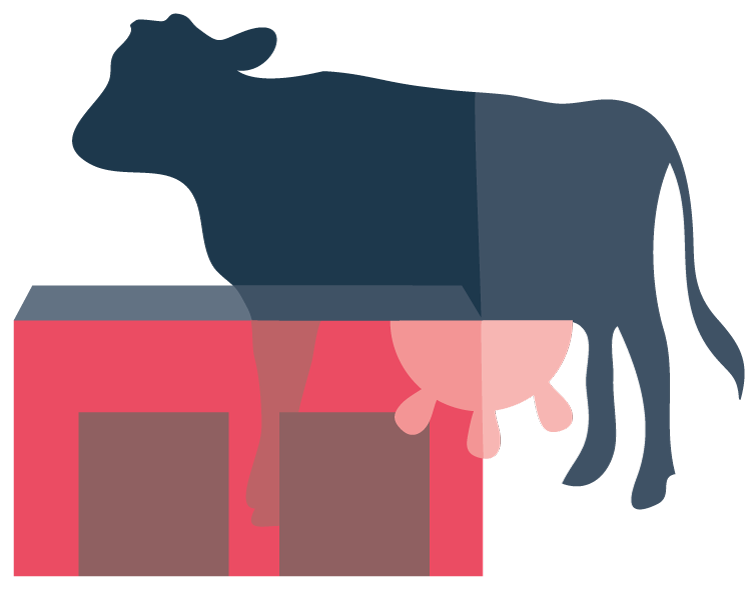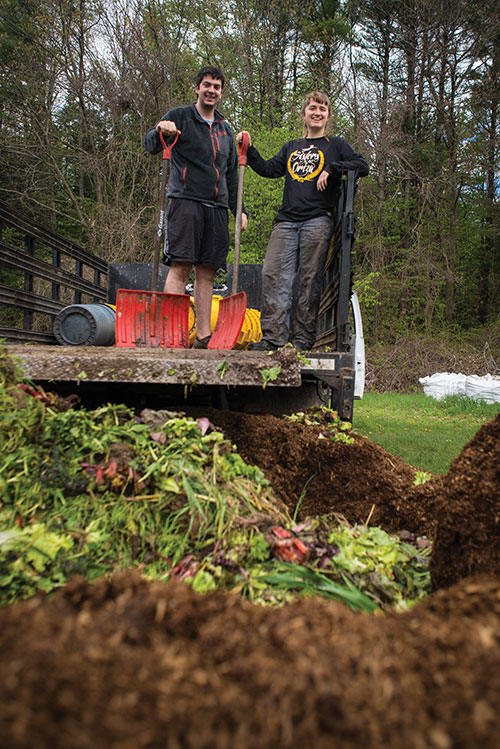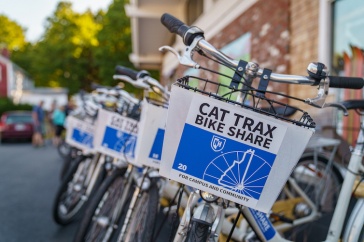
When Sarah Jacobson ’07, ’12G returned to UNH in 2009 for a graduate degree in nutrition, she knew she also wanted a more holistic view of food.
“The ecogastronomy program really fit that idea,” she says. “It was multi-disciplinary and the focus is on food, but it allows you to look at agricultural science, political science and the social aspects of food as well.”
Jacobson saw those areas intersect firsthand as a volunteer for Seacoast Eat Local at weekly farmers markets. The organization wanted to expand the use of Supplemental Nutrition Assistance Program (SNAP) benefits at local markets but needed help. Jacobson was eager to lend a hand, and bringing SNAP benefits to Granite State farmers markets became her capstone project.
“It was an opportunity to look at the needs of the state and think about the capacity farmers markets have to not only help improve access to fresh and healthy food but also to potentially increase profits for farmers. It was exciting to connect all those dots,” she says.
Connecting those dots reveals how deeply woven food and the issues surrounding it are to sustainability. At UNH, food and sustainability are inextricably linked, a bond that’s revealed through research, education, practice and everyday operations.
“UNH has an amazingly rich set of offerings, and most of the focus is on sustainable components. We’re meeting our land grant mission by doing the kind of research and teaching that focuses on small, independent farms,” says professor John Aber, an ecogastronomy faculty member.
Now in its 10th year, the ecogastronomy program has 120 alumni. The program features two key components: a study-abroad experience and a capstone project that’s linked to the community. The major allows students to “interact with the community and make change locally and more broadly,” says Dan Winans, who directs the major, which is closely linked to the sustainable agriculture and food systems program, now part of the new department of agriculture, nutrition and food systems in the College of Life Sciences and Agriculture.

Research efforts across campus also give faculty, staff and students the chance to explore a more sustainable food future. Innovative food solutions are being developed everywhere on campus, from the the aquaculture research program and the Organic Dairy Research Farm, operated by COLSA and the NH Agricultural Experiment Station, to Aber’s own lab, where he’s looking at ways the Organic Dairy can use composting to generate energy, and the high tunnels on campus, where vegetables used by dining services are grown.
For Bill McNamara, executive director of hospitality, bringing sustainable operations to UNH’s food systems is simply “the right thing to do.”
“It’s about taking care of our food systems and ensuring there’s food in the future and doing so with as little waste while feeding as many people as cost effectively as we can,” he says. University dining halls look toward sourcing ingredients as locally as possible and seek out partnerships with regional farms and producers. Dining Services is also part of the national Menus of Change program, which aims to reduce red meat and increase the amount of fresh fruits and vegetables on campus menus. The new Wildcat Stadium is on track to become a zero-waste facility.

All these efforts create new opportunities for UNH to collaborate with organizations and municipalities across the state. The Sustainability Institute is part of Food Solutions New England’s “A New England Food Vision” initiative, which lays out a plan for the region to produce 50 percent of the food it needs by 2060, as well as New Hampshire Farm to School, which brings produce grown by Granite State farmers into local elementary and high schools.
“Sustainability is central to the culture of the region,” Aber says. “Managing the food system sustainably and responsibly is a cultural thing as much as an environmental thing. I’m just really excited about it.”
Read more about the overarching story of sustainability at UNH here:
-
Blue and White and Green All Over
-
New Angles on Old Problems
-
A Carbon-Neutral Future
-
Starting Somewhere
-
People Power
Originally published in UNH Magazine Fall 2017 Issue
-
Written By:
Larry Clow '12G | UNH Cooperative Extension



















































